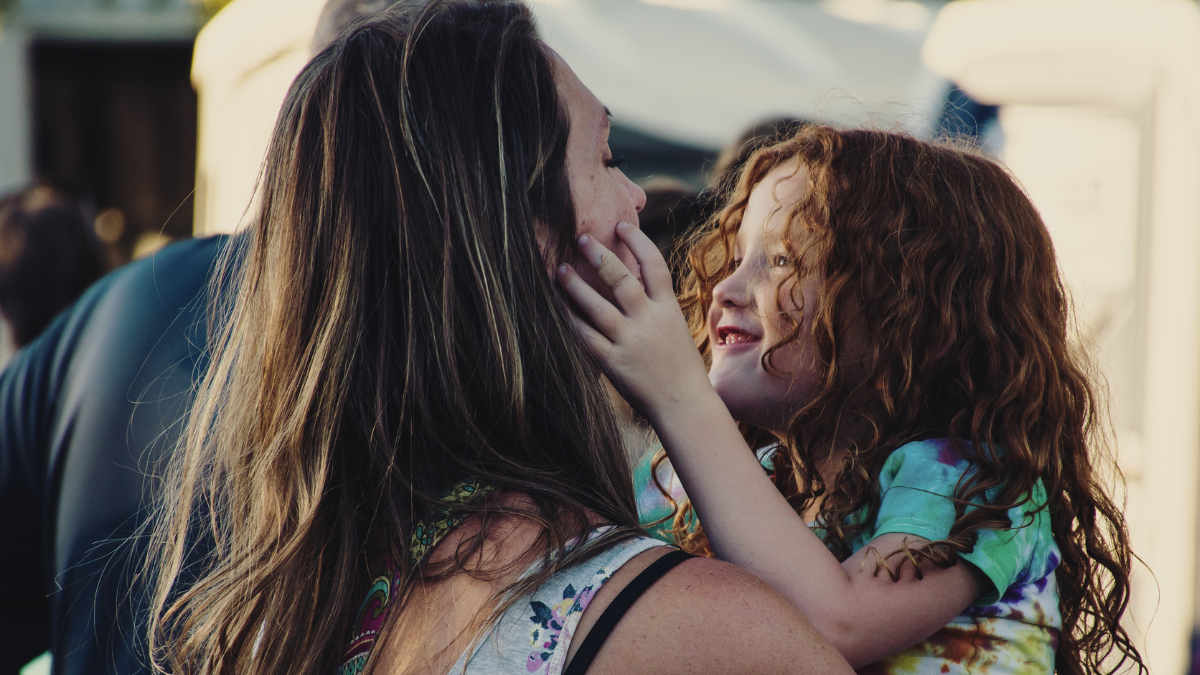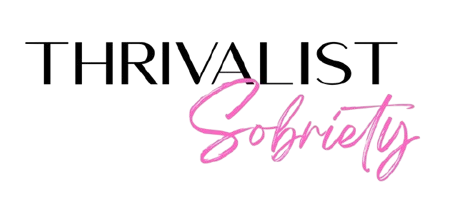
Mums: Wine is NOT Helping You
My drinking career began in my teens, binge drinking most weekends, hopping from house party to house party. My twenties was littered with wild, booze-fuelled parties, blackouts on more occasions than I care to admit, and plenty of mornings-after where I found myself waking up on top of the covers, clothes and makeup still on from the night before.
I thought I’d grow out of drinking like this; that motherhood would magically transform me into a moderate drinker. I distinctly remember saying to my husband, ‘I can’t wait to become a mum so I don’t have to drink like this anymore!’. Spoiler alert: that didn’t happen.
In fact, my drinking ramped up after babies. It morphed from weekend binge sessions, to mummy’s me-time-wine every night. I wholeheartedly bought into mummy-wine culture, believing that drinking wine was my self-care routine. It was my little helper, and what I believed I needed to cope with the monstrous change in lifestyle and identity that new motherhood brings.
Having gone through and been out the other side of alcohol addiction, I now see how dangerous mummy-wine culture is for new mums.
Take a moment to consider just how vulnerable a new mum is. Literally overnight, she’s been completely separated from her old life and her old identity. She’s often socially isolated, unsure of what the hell she’s doing, and overwhelmed by the responsibility of keeping this tiny human not only alive, but thriving, 24 hours a day, seven days a week, with no break and no pay. Exhausted doesn’t begin to describe how drained she is, and she may even be deeply depressed (compounded by the shame of being depressed when she feels she should be lapping up the joy of new motherhood).
Now consider the messages this new mum is receiving from the media, social media, and Big Alcohol generally, about wine and motherhood.
Take Yummy Mummies, an Australian reality TV show, as an example. It glamourises day-drinking and mums-gone-wild weekend benders. Practically every scene in which the four moneyed, high-heeled, new mums get together, they drink. With one drinking champagne in her hospital bed post-birth, referring to it as her colostrum.
Social media feeds are inundated with memes telling new mums that:
The most expensive part of having kids is all the wine you have to drink;
It’s not drinking alone when the kids are home;
When you whine, mummy wines; and
I can’t wait for the day when I can drink with my kids instead of because of them.
She’s given cute baby onesies as gifts that innocently read, ‘Mummy’s drinking buddy’, and ‘My mum needs WINE’.
Wall hangings in the houses of friends and relatives roudly pronounce:
Motherhood: Powered by Love, Fuelled by Coffee, Sustained by Wine;
A glass of wine is nice but a bottle is better’; and
A meal without wine is called breakfast.
With all this cultural messaging, along with alcohol marketers targeting mums, it’s no surprise that a new mum reaches for wine to take the edge off. It’s her reward at the end of another long, hard day. And often, what seems like the only viable coping mechanism available (logistically, how many new mums can make it to yoga?!). Having a cheeky wine also serves to transport her back to a time when she was young, fun and free, which is a welcome escape as she sits on the couch in her vomit-stained pajamas.
What I want to tell any new mums out there who are struggling with motherhood and relying on wine to cope is that, despite the barrage of messaging to the contrary, alcohol makes motherhood harder, not easier.
Even one glass of wine is disruptive to sleep, meaning that the precious little sleep you are getting is compromised further. Also, the short-lived buzz and relaxing effect of wine comes with a hefty price tag, which is an onslaught of stress hormones (released to counter the artificial release of dopamine). These stress hormones stick around in your system a lot longer than the feel-good chemicals, which means that the net effect of drinking wine is more stress, not less. Drinking leaves us irritable, snappy and impatient the next day, which makes the challenges of motherhood more overwhelming than they need to be.
Another thing I want you to consider is the drinking behaviour you’re modelling to your kids when you use wine to cope. Mums tend to do everything in their power to set their kids up for health and success, from playing Mozart to our babies in utero, putting their names down at the best schools at birth, and attending every toddler class under the sun. But mums rarely stop to think about how the drinking behaviour they are modelling to their kids is likely to be repeated by their kids in adulthood. If we want to set our kids up for success in terms of having a healthy relationship with alcohol, we need to very carefully consider the drinking behaviour we are modelling for them to repeat.
And finally, while mummy-wine culture may be fun and games for many mums, for those with a pre-existing vulnerability to addiction, there’s nothing funny about it. Mummy-wine culture glamourises alcohol abuse, which is always a precursor to alcohol addiction. And by regularly consuming alcohol, a highly addictive substance, those mums vulnerable to addiction are putting themselves in the firing line for addiction to develop. And once alcohol addiction takes hold, it’s a difficult beast to overcome.
To end this blog post I’d like to leave you with a list of alternative self-care practices for the new-mum relying on wine:
1. Rethink self-care:
This is key for practicing self-care as a new-mum. Self-care practices don’t need to last for hours, they don’t have to involve you leaving the house, and they can even include your kids. Try these small acts of self-care on for size:
-
Sit in the garden with a cup of hot tea and the morning sun on your face for five minutes while bub sleeps;
-
Five minutes of breathwork while your babe plays on her playmat;
-
Lie on your back with your legs up the wall while your little one plays next to you;
-
Practice conscious deep breathing while feeding your baby.
2. Maximise nap-time
This time is gold for stay-at-home mums. Forget mindless scrolling on social media, or manically cleaning the house. Put yourself first. Meditate, read a book, do some yoga in the lounge room, take a luxurious uninterrupted shower or bath, or even take a nap yourself.
3. Arrange a break for yourself once a week
If you have a partner, ask him or her to look after the baby for an hour or two once a week to give you a break. You can use this time to do whatever you feel will nurture your soul. Meet up with a friend for a cuppa, go to yoga or simply sleep.
If you don’t have a partner, ask a relative. If you don’t have a relative, get creative. Ask a friend (maybe she looks after your baby for an hour and you look after hers at another time so you both get a break!). Another option, if you have a spare room, is to get a live-in au pair who will give you 20 hours of childcare/housework a week in exchange for food and accommodation. If this idea excites you, learn more about it here.
4. Connect with people
New motherhood can be very isolating. Prioritise connection with others. Join a local mums group and go to the weekly get togethers. Find another mum in your area and connect for pram walks. Set up regular video calls with loved ones you don’t get to see often. And reach out to your people for help when you need it.
5. Go to bed early
Because sleep is interrupted by babies, an incredible act of self-care for a new mum is to go to bed early. It can be tempting to stay up and do things that ‘need’ to be done, but maximising the time available to sleep is key. Our mood is better when we’ve slept more, we’re less overwhelmed, and we generally just cope better, so prioritising an early bedtime is a powerful way to look after yourself.
If you need any help ditching the wine, that’s what Thrivalist is here for. It’s a perfect offering for mums wanting to change their relationship with alcohol because the course is offered entirely online meaning it can be completed from home, and in your pajamas.
Send us an email to find out more, or sign up to the next course starting 29 July.

Post a comment